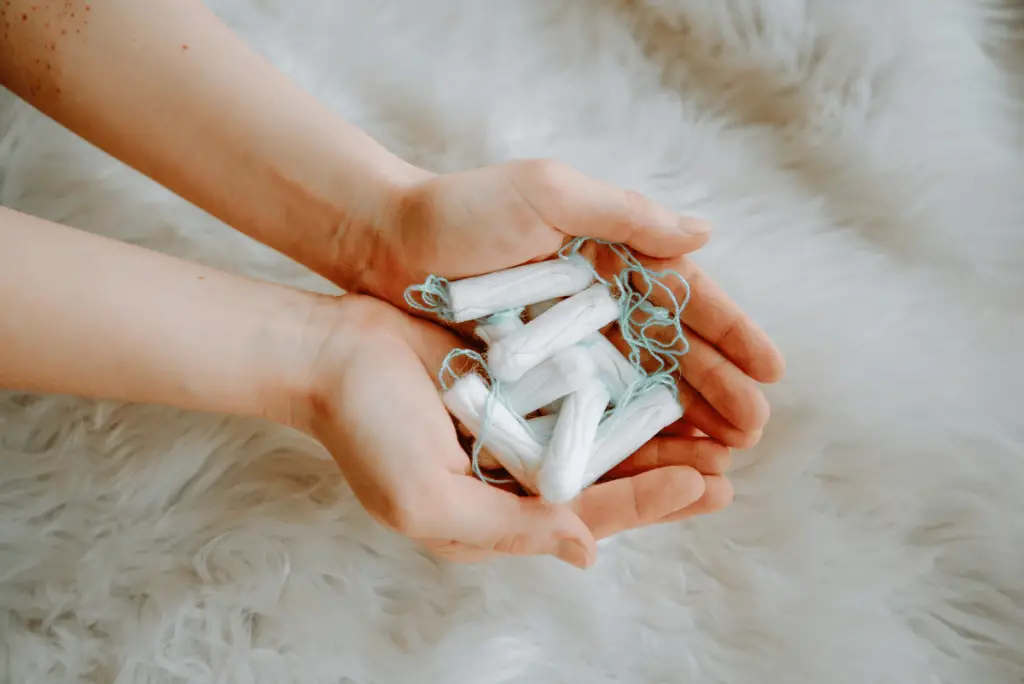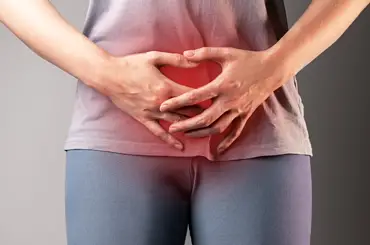Every day, we come across various trends. Some are accepted without question, while others seem absurd and make us wonder. But have you ever heard about selling used tampons? Yes, you read that correctly.
I was also shocked when I learned that people are actually selling their used tampons. This trend has gained a lot of attention and sparked debates among internet users.
Is selling and using used tampons safe? In this blog post, I have gathered all the essential information you need to know about this controversial trend. You will discover why people sell used tampons and the dangers involved in using them.
Do People Buy Used Tampons?
No, a lot of people don’t buy used tampons as it is considered illegal in many places to sell biohazardous material, like used tampons, given that they are products that have been in contact with bodily fluids.
Actually, a lot of women I have asked found the idea of using used tampons ‘disgusting and absurd.’
Used tampons are considered personal hygiene products and therefore should be discarded after use. The primary purpose of tampons is to absorb menstrual flow, and they are not designed or intended for reuse.
Like other hygiene products such as pads and menstrual cups, tampons are manufactured for single use only. They are made from materials like cotton or rayon, which are absorbent and designed to expand when in contact with moisture.
After fulfilling their purpose, you ought to dispose of them properly, usually by wrapping them in toilet paper or using dedicated sanitary disposal units.
5 Reasons Why People Sell Their Used Tampons
When I first heard about this controversial trend, like you, I couldn’t help but ask myself, “Why?” Intrigued to understand the motivations behind selling used tampons, I reached out to collectors involved in this practice. Below are some of the main motivations for selling used tampons;
1. They are seen as unique and rare Items
Some individuals view their used tampons as unique or rare items worth selling. They believe that these personal care products hold a distinctiveness that appeals to collectors or those seeking unconventional art. Selling their used tampons allows them to offer something unusual and one-of-a-kind to potential buyers.
2. As an unconventional art
For some, used tampons hold artistic value. They see these items as interesting works of art that can provoke thought, challenge societal norms, or convey a message.
By selling their used tampons, they aim to contribute to the realm of artistic expression and generate discussions around personal experiences and bodily functions of the female body.
3. Cultural or historical significance
Some argue that used tampons possess cultural or historical significance. They believe that these items can provide insights into menstrual experiences. By selling their used tampons, they aim to preserve and share this unique aspect of the human experience.
4. Out of curiosity and fascination
Some people are genuinely curious about the human body and its functions. They find the idea of acquiring used tampons intriguing, as it allows them to explore and better understand the intricacies of menstrual cycles and bodily processes. Selling their used tampons provides an opportunity for others to satisfy their curiosity and learn from their experiences.
5. As a form of personal expression
For a few, selling their used tampons is a form of personal expression and empowerment. They believe that embracing and celebrating their menstrual cycles openly challenges societal taboos and contributes to breaking down stigmas surrounding menstruation. By selling their used tampons, they aim to reclaim control over their bodies and encourage others to embrace their natural bodily functions without shame or secrecy.
5 Potential Dangers Of Using Used Tampons
1. Risk of Infections
Used tampons can harbor harmful bacteria and pathogens, which can lead to various infections. Your vaginal area is highly susceptible to infections, and introducing bacteria-laden tampons can disrupt the natural balance of your vaginal flora.
Bacterial vaginosis, yeast infections, and even more severe conditions like toxic shock syndrome (TSS) are among the potential risks of using tampons.
2. It could lead to Toxic Shock Syndrome (TSS)
TSS is a rare but life-threatening condition associated with the use of tampons. It is caused by certain types of bacteria, such as Staphylococcus aureus or Streptococcus pyogenes, releasing toxins into the bloodstream. Reusing or using already used tampons increases your risk of getting bacterial growth and toxin production, putting individuals at a higher risk of developing TSS
3. Lack of absorbency
Used tampons lose their absorbency over time. The fibers may become saturated, compacted, and less effective, which can lead to leakage and discomfort when reused. So, it’s important that you use fresh tampons to ensure proper absorption and prevent leaks, which can be embarrassing and inconvenient.
4. It brings a risk of cross-contamination
Using someone else’s used tampons or buying used tampons from unknown sources carries the risk of cross-contamination. Determining the sanitary conditions under which the tampons were used, stored, or transported is impossible. This is because a lack of control over hygiene standards will increase your chances of being exposed to harmful bacteria and potential infections.
5. Poor hygiene and odor
Used tampons can generate unpleasant odors and promote poor hygiene. The accumulated blood and tissue can cause foul smells, making it uncomfortable for you and those around you. Therefore, maintaining good menstrual hygiene practices, including using fresh tampons and changing them regularly, is essential to prevent odor and maintain personal freshness.
5 Things To Do With Used Tampons
Are you wondering what to do with your used tampons? Below are some things you could consider;
1. Wrap it up and dispose of it properly
The most common and recommended method of disposing of used tampons is to wrap them securely in toilet paper or the tampon wrapper before discarding them in a waste bin. This helps contain any potential odours and ensures that they are safely disposed of.
2. Use tampon disposal bags
Another option is to use tampon disposal bags, which are specifically designed for the hygienic disposal of tampons. These bags are usually small and discreet, allowing you to seal the used tampons securely before disposing of them in a waste bin. Tampon disposal bags can be purchased online or at local stores and can be quite convenient.
3. Sanitary bins
Some restrooms, particularly in public spaces or workplaces, provide you with dedicated sanitary bins for the disposal of feminine hygiene products, including tampons. If you come across such designated bin, use it to safely dispose off your used tampons. These bins are typically emptied and sanitized regularly by professional waste management services.
4. Use a menstrual cup
Consider using alternative menstrual products like menstrual cups. These reusable options are gaining popularity due to their eco-friendly nature and affordability.
With menstrual cups, you can collect your menstrual flow instead of absorbing it, thus eliminating the need for tampons altogether. After emptying the content, they can be rinsed and reused, thus reducing waste significantly.
5. Incineration
Some communities have facilities that accept sanitary waste for incineration. You should check with your local waste management authorities to see if this option is available in your area. Incineration can help you ensure the complete and safe disposal of your used tampons.
Can I Use Used Tampons?
No, I strongly advise that you don’t use used tampons. Tampons are designed for single use only and should be properly disposed of after use. Using a used tampon can pose significant health risks and can lead to various infections and complications.
Used tampons can harbor harmful bacteria and pathogens, increasing the risk of infections such as bacterial vaginosis or yeast infections. As I mentioned earlier, reusing tampons can even lead to more severe conditions like toxic shock syndrome (TSS), which is a potentially life-threatening illness.
To ensure your health and hygiene, it is crucial that you stick to using fresh tampons and change them regularly according to the product’s instructions. Remember always to follow proper menstrual hygiene practices and dispose of used tampons responsibly.
Frequently Asked Questions
When did tampons become widely used?
Tampons gained widespread popularity and usage in the mid-20th century, particularly in the 1960s and 1970s.
Can you sleep with a tampon in?
Yes, it is safe to sleep with a tampon in. However, ensure it is not for more than eight hours.
Conclusion
As a woman, the idea of selling used tampons is deeply concerning and highly problematic. Menstruation is a natural bodily process that deserves respect and understanding rather than being reduced to a commercial transaction.
The sale of used tampons not only raises serious health risks, such as the potential spread of infections or diseases, but also reinforces harmful societal attitudes towards women and their bodies.
Therefore, it’s important to build a future where menstrual health is prioritized and women can confidently manage their periods without the need to sell used tampons.






